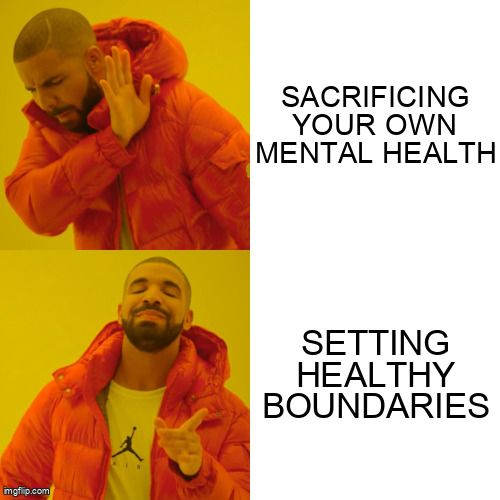
Meet anxiety.
Imagine giving a presentation at school or work. Your heart starts beating fast, you feel a sharp pain in your stomach, and your mind is running wild with so many thoughts.
If your partner lives with an anxiety disorder, this is how they feel almost every day.
Support your partner by talking to them and using other calming strategies.
Figure Out the Cause
According to the DSM-5, anxiety disorders are "a combination of worry and anxiety that are difficult to control."
There may be many causes for your partner's anxiety:

Biological — brain chemistry or genetic factors can lead to anxiety.

Psychological — anxiety can be a response to trauma in your partner's past.

Social — isolation, stress, and money issues can cause people anxiety.

Other — anxiety can be a side effect of some drugs and medications.
Since there are so many causes for anxiety, it's important to talk with your partner to learn about what could be causing their anxiety. Your partner might also benefit from speaking to a mental health professional about possible causes.
Validate Your Partner's Feelings
When you validate your partner's feelings, you're letting them know that you are listening and trying to understand how to help. Keep this in mind when you are talking to your partner.

Say:
"I'm here for you."
This lets your partner know that you support and love them.
"That sounds stressful."
This validates your partner's feelings and makes them feel understood.
"Let me know if you need anything."
Instead of giving unsolicited advice, listen to what they need.

Avoid:
"Just calm down."
It's difficult for people with anxiety to relax and stop worrying.
"It isn't a big deal."
Even though their worry may seem small, this will not make them feel validated.
"Everyone gets anxious sometimes."
This could minimize your partner's feelings and experiences.
Quiz
You and your partner are late for a dinner reservation. They're very worried about missing the reservation. What could you say? Select all that apply:
Try Calming Strategies
When people with anxiety start to worry, it's hard for them to find a way to calm down. If they are not in a space to talk, try these calming strategies.
Breathing Exercises
During a panic attack, your partner is in "fight or flight" mode. Breathing helps get our bodies out of that state.

You can lead your partner through these exercises:
Belly Breathing
Put your hand on your belly.
Breathe in through your nose until your belly expands.
Exhale slowly through your nose.
Repeat.
4-7-8 Breathing
Breathe in through your nose for 4 seconds.
Hold it for 7 seconds.
Breathe out of your mouth for 8 seconds.
Repeat.
Physical Pressure
Pressure can lower your heart rate, slow down your breathing, and return your body to "rest" mode. Try giving your partner a hug or a weighted blanket.

Give Them Space
It's important to note that your partner may just want to be alone. Don't try to force them to calm down. When they're ready for help, they'll come to you.
Scenario: Helping Your Partner
Imagine your partner just got a stressful email from their boss. They begin breathing heavily and can't calm down.

You try to talk with them, but they're not in a space to talk.
Quiz
How can you help your partner? Select all that apply:
4. Take Care of Yourself, Too!
Remember that you're also a person that needs support. You and your partner are a team in your relationship.

If you feel overwhelmed, have an honest conversation with them. Share how you are feeling, and come up with a solution together.
Suggest having them talk to a family member, friend, or mental health professional.
Conversation starters:
"I am feeling overwhelmed because _______. Can we have a talk?"
"I know you need support when you're anxious. However, sometimes I feel ________. Can we come up with a solution together?"
Take Action

Your feedback matters to us.
This Byte helped me better understand the topic.
